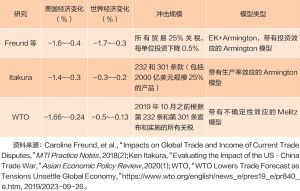章节
从“脱钩”到“去风险”:掩盖分歧、调和利益
摘要
本文从观察“脱钩”对美国经济和全球经济的危害出发,梳理了“脱钩”和“去风险”在过去数年内的语义变化。从语义上来看,“去风险”似乎比“脱钩”更加委婉、含糊,但这种故意的含糊其词可以起到掩盖美国及其盟友之间的分歧并调和利益的作用,对于美国而言,“去风险”足够模糊其政策内容,而且足够灵活;对于美国的盟友而言,不希望像美国那样在经济上与中国分离。中国在全球具有重要的市场地位,“脱钩”和“去风险”皆是虚妄,执意“去风险”不仅会牺牲他国利益,使全球市场风险上升,还会使美国及其盟友卷入地缘政治风波,使全球地缘冲突风险上升,同时引发的种族歧视也会反噬美国自身社会。欧美国家应该承担起防范自身政策带来风险的责任,不能只将风险归咎于其他国家,更不能以风险为借口采取保护主义和对抗性政策。应该团结各国关注人类社会共同面临的风险,比如经济危机、债务危机、网络安全、生态风险等,避免将风险政治化。
作者
石先进 ,中国社会科学院世界经济与政治研究所国际贸易研究室助理研究员,主要研究方向:国际贸易。
检索正文关键字
章节目录
- 一 引言
-
二 “脱钩”和“去风险”的语义演变
- (一)脱钩
- (二)去风险
- 三 从“脱钩”到“去风险”:掩盖分歧、调和利益
-
四 “去风险”也有风险
- (一)“去风险”的风险
- (二)美欧是全球首要的风险责任主体
- 五 结语
相关文献
查看更多>>>





